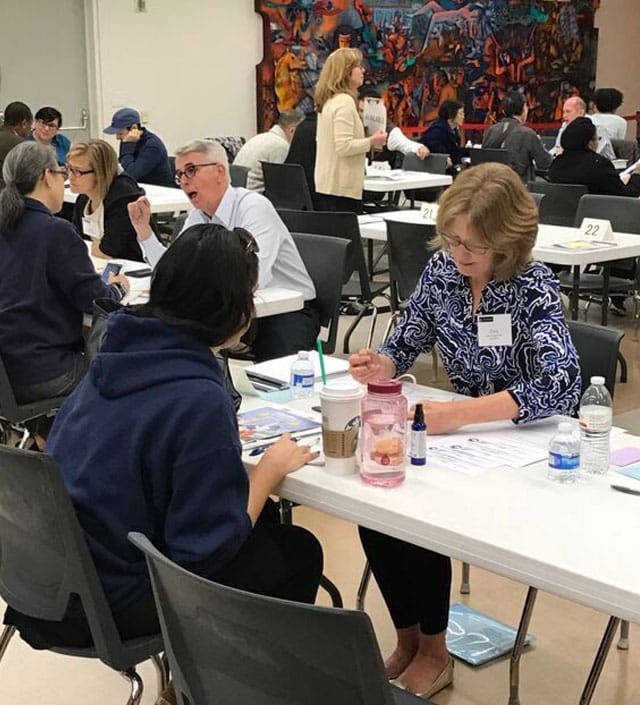When Chris Remedios saw the news of Hawaii’s historic city of Lahaina burning down, her compassion ran deeper than usual.
In her experience as director of pro bono services for the Financial Planning Association of San Francisco, Remedios knows the mind-boggling financial landscape ahead for America’s newest wildfire refugees.
The Aug. 8 wildfire killed hundreds of people on Maui. Thousands lost everything overnight. Even more lost their livelihoods.
Property losses are expected to compare to the North Bay fires that ravaged Northern California in 2017. Those wildfires and others left some of Remedios’ clients with only the clothes they wore as they outran wind-whipped fires, too.
Remedios reached out to FPA of Hawaii to let her counterparts know what’s possible, although she says it’s too soon for Hawaii to model FPA-SF’s wildfire response.
“When a city is in disaster mode, it’s hard to reach out to government officials, because they’re running in a million directions,” says Remedios, CFP, owner of Remedios Financial Planning in San Francisco. And Hawaii’s FPA “would be starting from scratch.”
Her FPA chapter already had pro bono infrastructure when the wildfires came for California’s wine country, says Remedios, who is also a member of the Garrett Planning Network and NAPFA.
 Remedios was relatively new to FPA-SF in 2010 when she volunteered to help start the first Bay Area Financial Planning Days. The annual event provides “no strings attached” financial advice at a fair of estate lawyers, tax accountants and financial planners, along with nonprofits and relevant government agencies, including the city’s Office of Financial Empowerment and the Conference of Mayors.
Remedios was relatively new to FPA-SF in 2010 when she volunteered to help start the first Bay Area Financial Planning Days. The annual event provides “no strings attached” financial advice at a fair of estate lawyers, tax accountants and financial planners, along with nonprofits and relevant government agencies, including the city’s Office of Financial Empowerment and the Conference of Mayors.
“It was amazing,” Remedios says. “That was so successful, especially with the government officials that could go beyond what we could.”
“So, we continue that,” says Remedio, who became FPA-SF’s director for pro bono services in 2015.
Today, she’s still building and expanding the Financial Planning Days. The national Financial Planning Association is celebrating her volunteerism with a Heart of Financial Planning Award at its conference Sept 27-29.
Blaze déjà vu
Lahaina right now is vulnerable, Remedios says.
“They are going to get a lot of money,” she says of the insurance settlements and relief programs that will pay out during the next year.
“That makes them vulnerable,” Remedios says. “We need our best people out there with no strings attached giving them information,” without investing right away.
“I think that’s absolutely essential,” Remedios says.
She remembers a NorCal couple who never had had a financial planner when the wildfire devoured their house. The woman took a photo of their flat clothing in running state, sans themselves, to illustrate their entire material life in that moment in 2017, Remedios says.
“We were able to connect them with one financial planner,” she says, “who would follow them through the next year” as they settled their insurance claim and rebuilt their home.
“It was a long, arduous process and part of their finding community again,” Remedios says.
“We did great work and made a huge difference,” she says.
Like with everyday clients, the disaster pro bono team listened to victims’ goals and helped them design a plan to achieve them.
But unlike everyday clients, these professionals had to ask questions like, “Do you want to rebuild your home where it was? How do you want to rebuild the home? What are going to be cost implications? How much do you have at your disposal to rebuild with maybe more of a cement structure versus the wood?”
Depending on their answers, they have different forms to file. Tax implications differ for each, says Remedios.
For example, she says, swapping property for a less fire-prone landscape might mean “not really selling a house but exchanging a pile of ashes that was a house for another house.” Such federal relief programs have special calculations on IRS Form 1040, and affect property taxes, she says.
“It’s very complicated,” she says of financial management in the first year after a disaster.
FPA-SF works closely with United Policyholders, a nonprofit that helps disaster victims navigate insurance and FEMA aid.
“We let them (United Policyholders) set the groundwork and tell us when we should come in as subject-matter experts,” she says.
And there’s a sweet spot in timing.
“We have these resources, and we don’t want to hit you over the head with them,” Remedios says. “We want to be respectful while people are dealing with the basics.”
It’s not just natural disasters that put Remedios’ pro bono team in the eye of catastrophe.
“There’s a right time to coordinate with people under stress, and that goes for people with, say, cancer diagnoses, as well,” Remedios says.
Fundamentals still apply
The pro bono team still asks, “Are you saving for retirement?” she says.
“Let’s face it,” Remedios says. “This country has designed very complex options for financial survival in retirement.”
When disasters, ill fate or mental illness cause people to lose their homes, “it doesn’t work to just move people out of the way. You have to provide people with dignity,” she says.
San Francisco, as a city with a small footprint but a large and diverse population, now requires most new housing downtown to have a below-market-rate component, she says.
It’s hard for many Americans to imagine how a household with $150,000 annual income can be borderline subsistence, but that’s true around Silicon Valley, Remedios says. One bad-luck day can leave an employed San Francisco family without a home in a snap.
“But that’s the way it is. So, we take it one step at a time, like we do everything in life,” Remedios says of coordinating civic and nonprofit resources so people on the underside of income inequity don’t have to look in “a million directions.”
“When they don’t have a home and they’re under stress … that’s probably not the time to sit down to talk to them about how important it is to create a budget or to have a retirement plan,” Remedios says. “There’s something else that needs to be built there first.”
The city coordinates with nonprofits to process applications for those below-market-rate homes to ensure recipients are durable and understand the function of those plum opportunities, she says.
Her pro bono team refers clients and continues to work with them after they land that housing.
“The community always rallies. People want to help one another,” Remedios says.
Some of the best work Remedios’ pro bono team did, she says, was the mini-sessions that gathered subject-matter experts in 2018 for the people who lost their homes and for other wildfires survivors.
“You’re holding someone who’s struggling, and listening to what they have to say,” Remedios says. “It’s not always all about your expertise. Sometimes, it’s just being there to listen.
“It’s a scary, scary time to be uprooted from your home that you had to flee. You’ve lost your home and neighbors you care about, who lost their homes,” she remembers.
She went beyond her financial planning niche to turn her compassion into action.
“It’s that integration that’s so important, so you don’t just say to someone — especially someone who is financially on the edge — oh, now you have to go to this next thing, and then another process of being evaluated to see if you are worthy of financial planning or below-market-rate housing,” Remedios says.
“We bring all those subject-matter experts together under one umbrella (at Financial Planning Days and mini-sessions) to cooperate and support one another,” she says.
Keeping fresh
The letter nominating Remedios for the Heart of FPA award underscores how she pairs an FPA NexGen rookie with an experienced planner for the pro bono work, she says.
“To share the different experiences of each enriches the pro bono client,” Remedios says. “To me, the heart of financial planning always has a pro bono base.”
But the ying/yang teaming is not entirely altruistic.
“Sometimes, you need to have new ideas,” she says.
While younger planners may bring new technology, “as we age, we get clearer about humility and compassion,” she says.
Not only does the pairing cross-pollinate generational education and experiences. The collaboration exposes both to the business culture of each pro bono partner’s firm, she says.
The national FPA’s chief communications officer, Ben Lewis, says Remedios’ nominator wrote: “Because Chris is both kind and direct, those of us who ask her for advice know that we will get truthful and helpful responses, no matter how difficult the situation.”
Additional Reading: FPA Honoree: ‘Budget is a Dirty Word’ To Some Advisors
Remedios is full-speed ahead now preparing the 2023 Financial Planning Days in October. It became a virtual event since the Covid-19 epidemic in 2020, she says.
This year, she’s adding an elder care component.
California Advocates for Nursing Home Reform, a social worker and an ombudsman who’s also a CFP will offer resources about financing and navigating long-term care.
Financial Planning Day is a big, complicated job, Remedios says.
“I wouldn’t call ours a model. It’s an incredible experience, and I’m proud of what we’ve put together, but it’s exhausting,” she says. “We are very robust in the offerings we have.”
Doing good deeds for others makes the giver happy, and it feels good to fellowship with happy people, she says.
“I love that part. The people I know who join together for pro bono initiatives have values similar to mine: I want to be able to share my knowledge in service,” Remedios says.
Linda Hildebrand is a longtime newspaper editor and consumer reporter.







